Edgar Allan Poe: Life Sucks and Then You Die
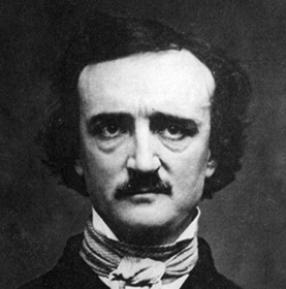
Poe was born Edgar Poe on January 19, 1809, in the city of Boston. His parents, David and Eliza were actors that travelled a circuit along the Eastern seaboard. His mother performed a week before his birth and would return again to the Boston stage a month later, which is indicative of the economic stability of Poe’s family. David Poe had abandoned a career in law to try and achieve his wife’s level of dramatic success. That he was unable to do so became a source of frustration and anger that eventually ended the marriage. He disappeared and was dead by 1811. Eliza took her three young children to Richmond where she would contract tuberculosis and also die in 1811, on December 8.
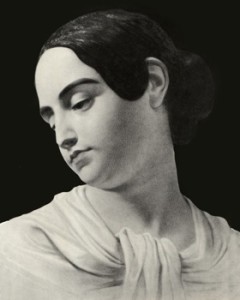
On May 16, 1836 Poe married Virginia Clemm. The groom was twenty-seven, the bride, fourteen. The specifics regarding when and if Poe enjoyed a physical relationship with his young cousin is a matter of dispute. It is widely believed that initially Poe and his wife’s relationship was platonic in nature but as she grew older their relationship became more typically romantic. That they were emotionally close and that Virginia Clemm practically idolized her husband has never been disputed.
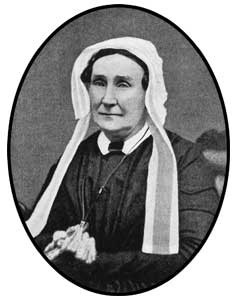
Poe and Maria Clemm remained in the Bronx, and 1847 started off reasonably well when he prevailed in a libel suit that provided a few hundred dollars. But Poe would write very little in 1847, depressed, distracted and his own health now deteriorating.
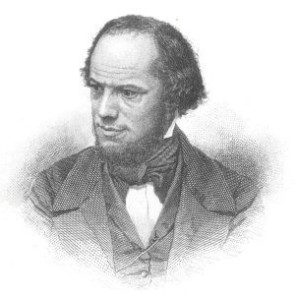
As if Poe had not suffered enough in life, upon his death, his literary estate and even personal reputation came under immediate attack. Rufus Griswold was a prominent anthologist who published the very popular “The Poets and Poetry of America.”, throughout the 1840’s. Wanting to be included in this anthology Poe naturally attempted to cultivate Griswold and Griswold, wanting Poe’s critical approval included occasional poems and corresponded with Poe. At best this was merely a business relationship, at times Poe lashed out at Griswold, both in criticism and lectures, that Griswold was the purveyor of the type of mediocre literature that Poe routinely would savage in his critical columns. Poe must have felt that their occasional disputes were behind them late in life because in his final years he is alleged to have appointed Griswold the executor of his literary estate. Unfortunately, Poe could not have been more mistaken in underestimating the deep animosity that Griswold still harbored for him. Within two days of Poe’s death, Griswold, using the pseudonym “Ludwig” published a lengthy obituary in the prominent New York Daily Tribune which disparaged Poe’s professional criticism, mentioned his wife’s death amidst extreme poverty and included such personal descriptions as “he walked the streets, in madness or melancholy, with lips moving in indistinct curses.” Because of his reputation as a Baptist minister and respected anthologist, Griswold’s slanderous profile gained traction with the press and public and severely damaged Poe’s reputation.
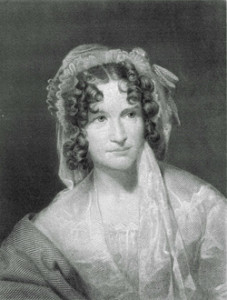
With his professional life at a dead end, Poe turned to another alternative to resuscitate his economic fortunes: marriage. With celebrity, Poe became the object of female attention that continued throughout the decade of the 1840’s. Poe became quite friendly with some of these women and now, he decided that one of them, Sarah Helen Whitman, six years older than Poe at forty-five, was worthy of more serious pursuit. A widow, Helen Whitman lived in Providence, Rhode Island and travelled within literary and intellectual circles. In 1848, Poe and Helen Whitman exchanged correspondence and Poe showed up in Providence without notice on September 21 and within days hastily proposed marriage. Poe had literally begged her to rescue him and reinvigorate his genius but Helen said that she would have to think it over. Ultimately, aware of the rumors of drunkenness and instability, Helen turned him down.
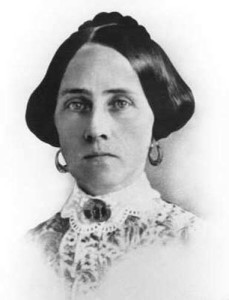
While in Richmond, Poe attempted to rekindle a very old relationship. This time it was with Sarah Elmira Royster Shelton, his former next-door neighbor and fifteen-year old sweetheart. Elmira’s husband, Alexander, a wealthy businessman had died in 1844, leaving behind a large estate. Although the will stipulated that Elmira would lose three quarters of the bequest upon remarriage and her family was hostile, Poe quickly proposed and insisted upon an immediate response. It is unclear whether Elmira Royster Shelton ever agreed to marry Edgar Allan Poe but on September 27, Poe left by steamer for New York. There he intended to settle his affairs, fetch his aunt and return to Richmond, where he at least believed his marriage would eventually take place.
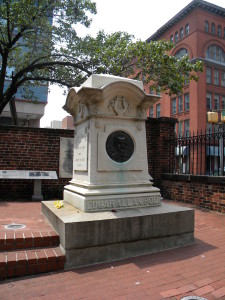
Following the distraction of the Civil War, a group of Baltimore public educators began a campaign within the school system to appropriately memorialize Edgar Allan Poe. It took ten years but the pennies and nickels collected by students as well as a sizable donation from a Philadelphia newspaper owner eventually provided the funds for a suitable monument. The impressive memorial was dedicated with great fanfare on November 17, 1875. Poe and his Aunt Maria Clemm were exhumed and reburied within an impressive marble structure.
Podcast: Play in new window | Download
Subscribe: RSS

